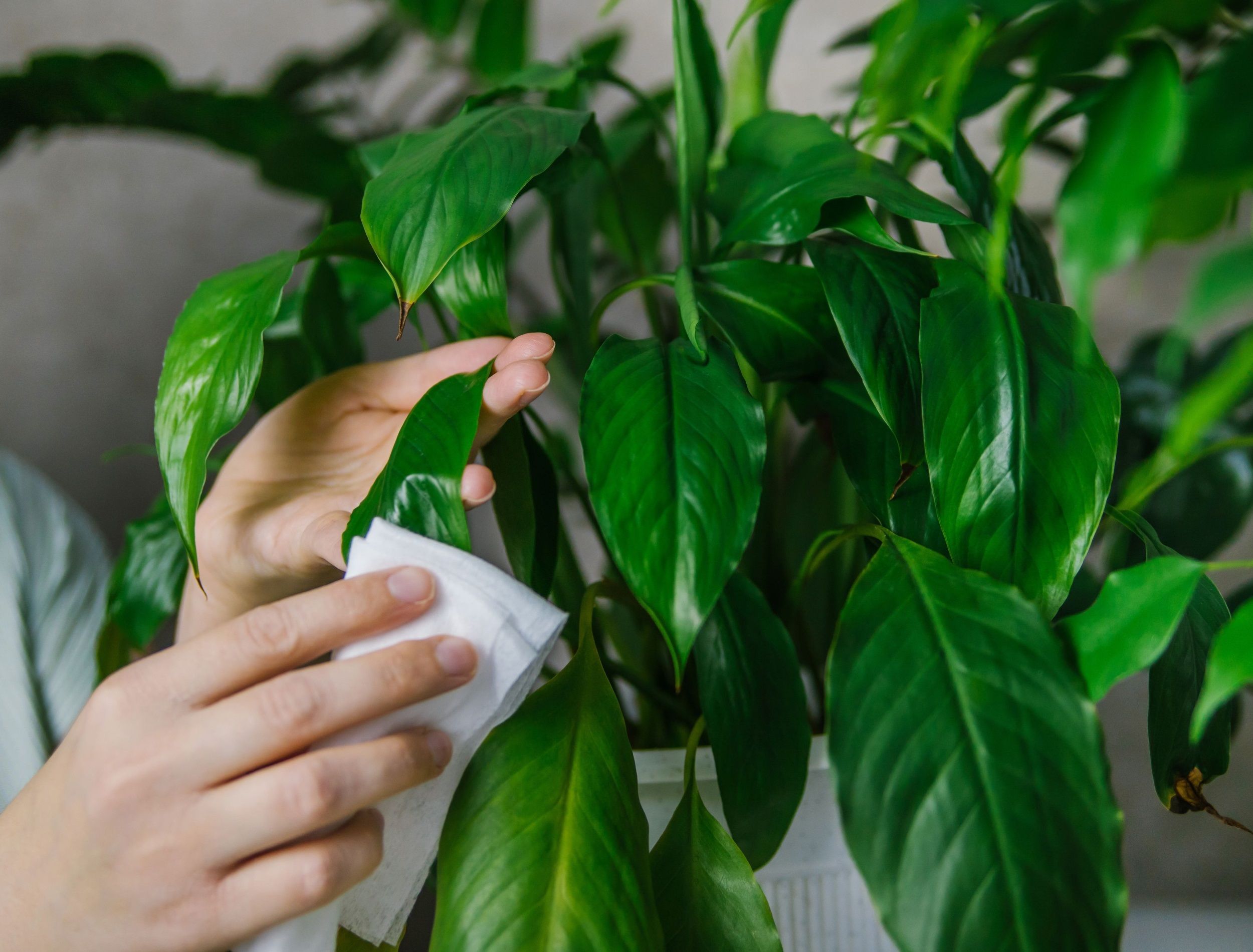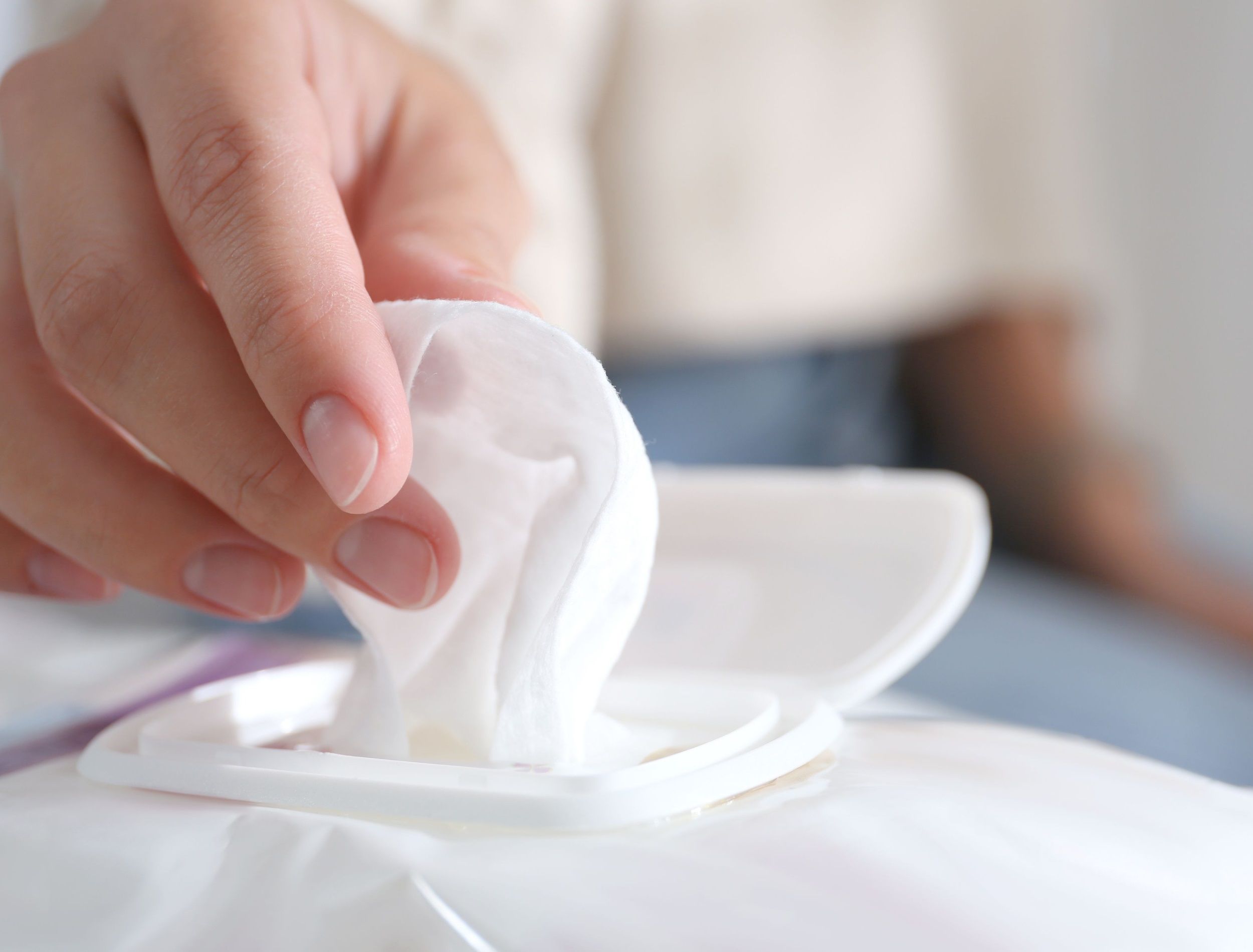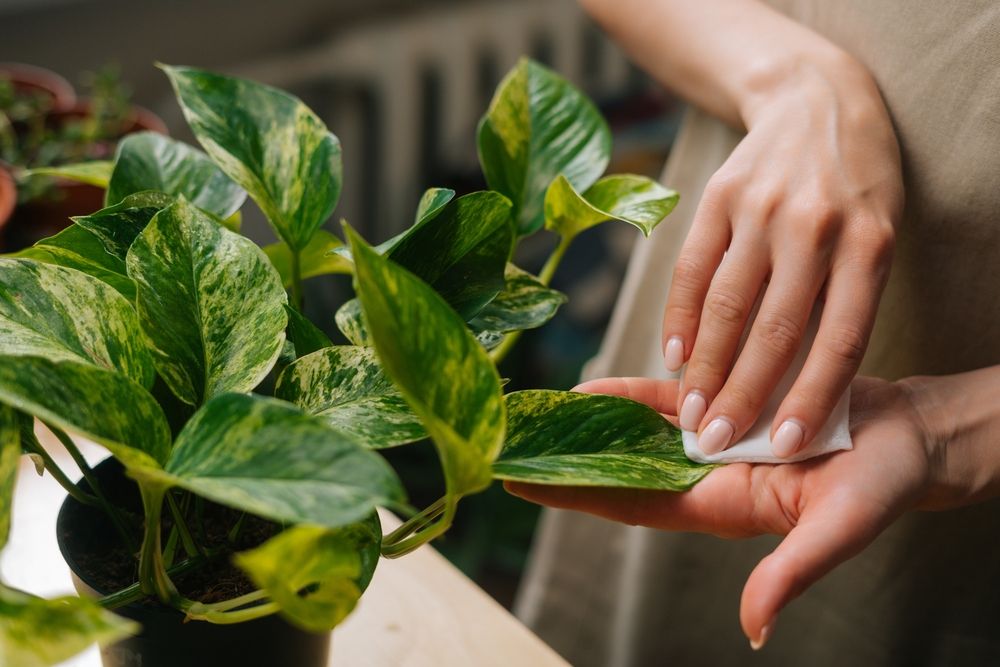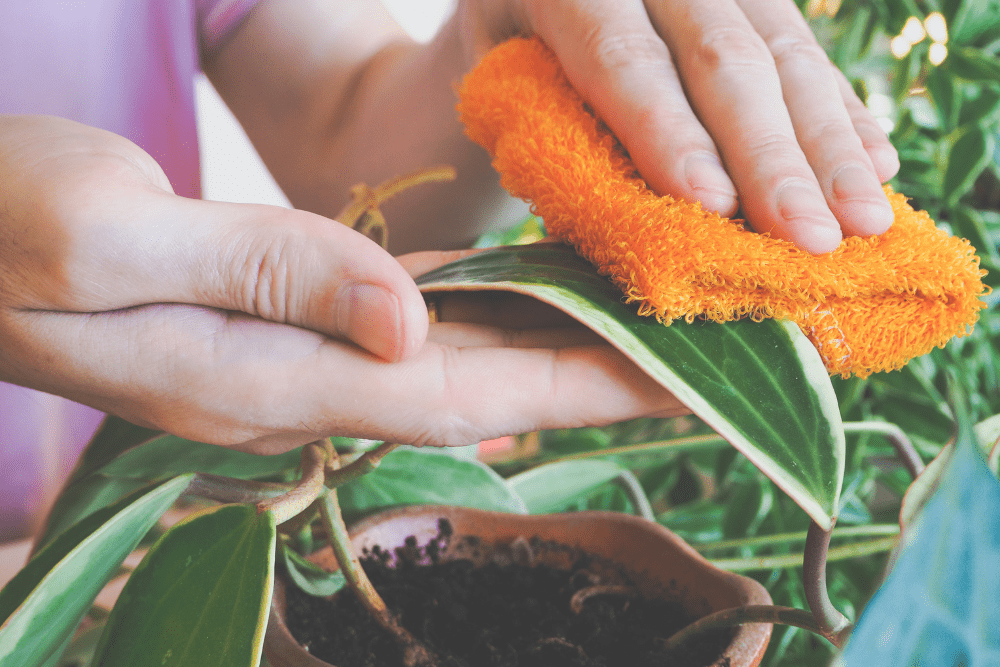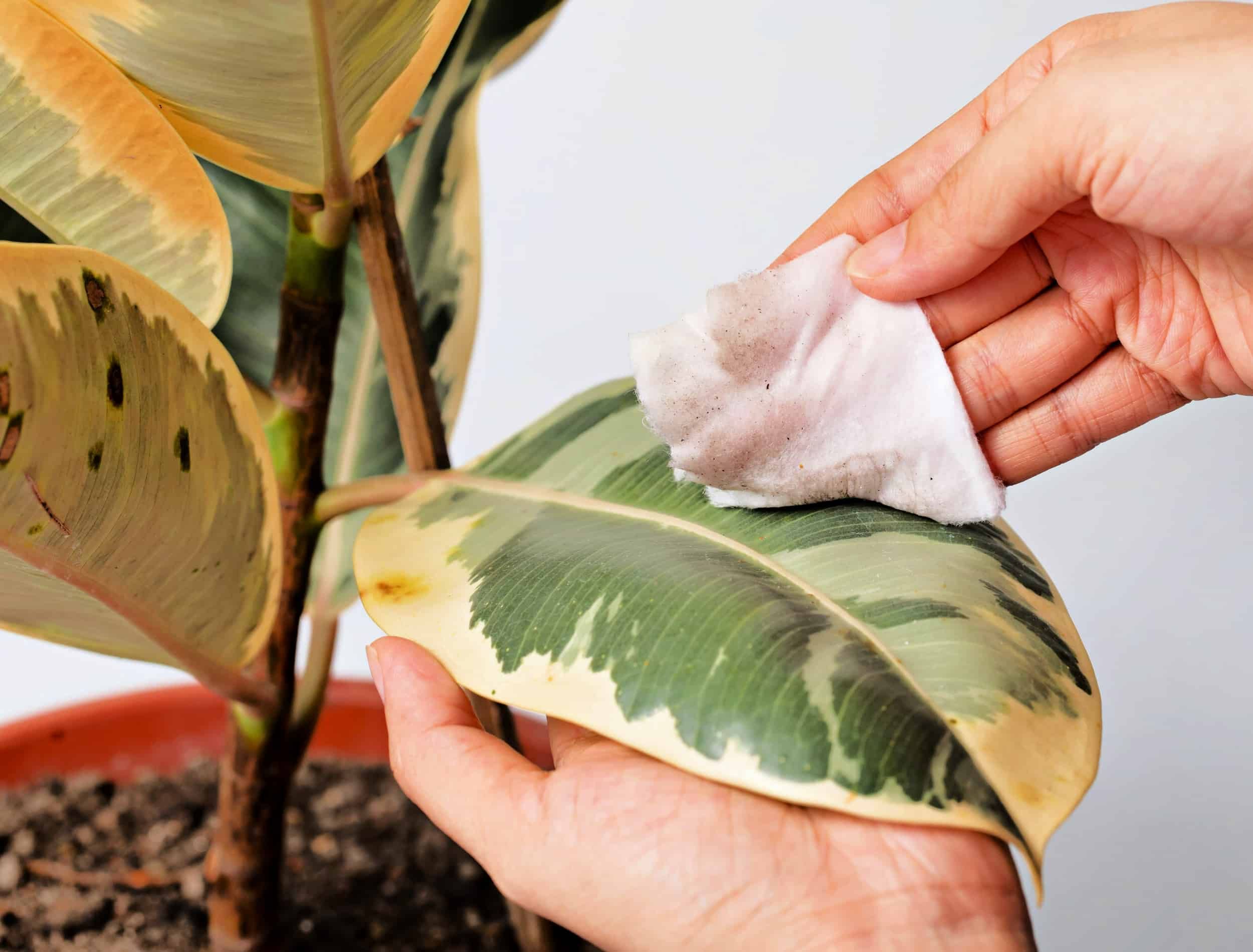Just about everyone knows that baby wipes are great for cleaning up little messes but, have you thought about keeping them in your gardening tool belt? If you've ever been curious about whether or not you can use baby wipes to clean plant leaves, you're in luck! Learn about the pros and cons of using baby wipes to clean your plants and by the end you'll have all the information you need to decide whether this is the right cleaning method for you!
Baby Wipes - Yay Or Nay For Plant Care?
Image Credit: New Africa via Shutterstock
The short answer is yes! Baby wipes are mostly safe to use on plants and can be a convenient way to keep them clean. However, there are some caveats that will be mentioned down below.
Here are a few tips on how to use baby wipes for cleaning plants:
- Gently wipe the plant leaves with a baby wipe, taking care not to damage any delicate parts. Don’t forget the undersides as well!
- Avoid using too much pressure, as this could strip away the plant's natural oils.
- Use a second baby wipe to remove any residual dirt or dust.
- Repeat as necessary, depending on the level of grime build-up.
So, there you have it! Baby wipes are an easy and effective way to clean plant leaves.
Pros and Cons Of Using Baby Wipes
Image credits: Dikushin Dmitry via Shutterstock
Are you looking for an alternative to traditional plant care? If so, here is a list of pros and cons to using baby wipes to clean your plant leaves:
PROS:
- Baby wipes are disposable, so you don't have to worry about reusing a dirty cloth.
- They're easy to use and require no extra water or equipment.
- Most baby wipes are gentle and won't damage delicate plant leaves.
- Incredibly convenient.
CONS:
- Baby wipes may not remove all the dirt and grime from plant leaves. You may need to add mild soap and water to your plant cleaning routine.
- Some baby wipes contain fragrances or other chemicals that could harm plants. Just be sure to choose a gentle, all-natural variety and avoid those with fragrances or other harsh chemicals.
- Baby wipes should never be flushed, as they pose a risk to the environment and our oceans.
- They can be quit expensive.
Alternative Ways To Clean Your Plant Leaves
Image credits: Stanislav71 via Shutterstock
While there are a number of commercial leaf cleaners available, they can be expensive and may contain severe chemicals that can harm your plants. Luckily, there are a number of alternative ways to clean your plant leaves that are gentle, effective, and easy on your wallet.
One of the simplest ways to clean plant leaves is to simply wipe them down with a damp cloth or sponge. This will remove any surface dirt and grime, and it won't damage delicate leaves. For a more thorough cleaning, you can add a gentle cleanser to your water; Baby shampoo or dish soap are both good options. Just be sure to rinse the leaves well afterwards to remove any soap residue.
If you have large, tough leaves, like a rubber plant, you can clean them in the shower in lukewarm water. Just turn the water on to a medium flow and hold the leaves under the spray. Use your fingers to gently rub any dirt or dust off of the leaves. Rinse them well and then allow them to air dry. This method shouldn’t be done too often, as it can lead to root rot if overwatered.
No matter what method you choose, cleaning the leaves on a regular basis will help them stay strong and looking their best. So, don't neglect your green friends - give them a little TLC and they'll reward you with beautiful foliage for years to come.
Why Cleaning Your Plant Leaves Is Important
Image credits: AngieYeoh via Shutterstock
We all know that plants are important for cleaning the air in our homes and offices. They help to filter out harmful toxins and pollutants, and they also boost our mood and improve our cognitive function. But, plants need a little help from us to keep them healthy. One of the most important things we can do for our plants is to regularly clean their leaves.
Leaves can become covered in dust, dirt, and other debris, which can block sunlight and prevent the plant from photosynthesizing properly. When this happens, the plant can’t produce the food it needs to survive. In addition, dirty leaves are more susceptible to pests and diseases. By regularly cleaning your plant’s leaves, you will help it to stay healthy and thriving.
Wipe Away!
So, should you use baby wipes to clean your plants? Simply put, yes!
The pros of using baby wipes for plant care are that they’re affordable, easily accessible, and useful. The cons are that they can be harsh on the leaves and may not be as effective at removing all types of dirt and grime. Ultimately, it’s up to you whether or not you want to try this method after reading!
Do you have any tips or tricks for cleaning plants with baby wipes? Leave a comment below!

